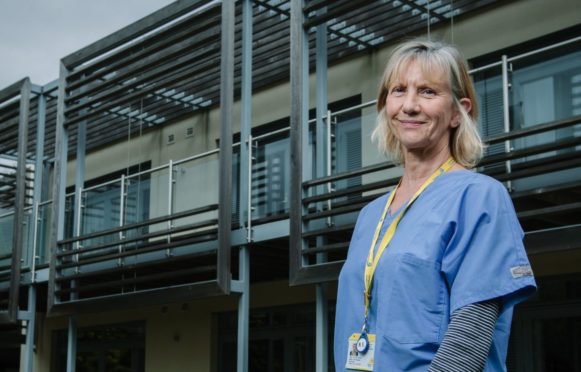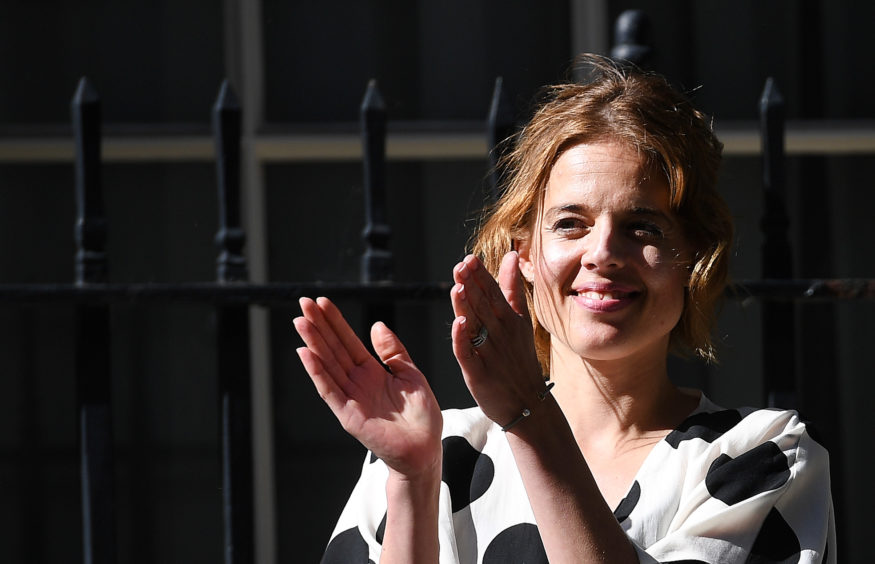
A nurse for more than 40 years, Barbara Stevenson hoped her career might be appreciated but never expected it would end with a nationwide round of applause.
But, in the weeks leading up to her retirement, she was heartened by Clap for Carers as the country showed how much the work of the nation’s health and social care workers was valued.
Now, as she leaves the profession, she hopes that sense of appreciation for the care being provided in hospital wards, hospices and care homes will endure long after the Covid-19 crisis.
“I have always known how much nurses and carers give to their patients and how little recognition they get in return,” said Barbara.
“If there is one thing coronavirus has done it is to highlight the professions that a lot of people didn’t give a second thought to. They might not be the country’s highest-paid business people, but they work as hard.
“Coronavirus certainly has heightened compassion for the NHS, not just for the medical staff but everyone from the hospital cleaners to the porters. They have been given some recognition and that’s great.”
Of course, compassion is key to why they have received so much praise and respect from the public, and Barbara is confident that will endure into the next generation of nurses.
She said: “You always remind yourself that the patient and their family is going through this for the first time and its unique to them, even though it’s a familiar situation to you. I’ve always tried to give as much to them as to the first person I met all those years ago and I think that is something nurses today can take from corona.
“We all chose this profession because we care – and corona has shown just what an important job we do. And how important it is to be non-judgmental and have compassion for people from all walks of life.”
Barbara embarked on her nursing career during the ’80s Aids pandemic, and thought she had seen it all over the last four decades. Little did she know that things would come full circle and she would end her years in the profession in the midst of an even bigger global health crisis.
Barbara has spent two thirds of her life caring for people suffering terminal illness but says the coronavirus has made for the most heartbreaking and challenging few months of her career.
“Even decades in the profession couldn’t have prepared me for coronavirus,” Barbara said. “I deal with people at end of life every day, but this has upset me more than anything.”
Barbara, 61, is a community palliative care specialist at Edinburgh’s Marie Curie Hospice. She had been due to retire in March but decided to delay her departure until the end of July so she could provide frontline care as the country went into lockdown.
“I thought I would only be working for a couple more weeks,” she said. “Never could I have imagined it would go on this long.
“Throughout my career, I have helped hundreds of patients at the end of their lives, but the deaths during coronavirus have been the hardest ones to cope with.
“I have watched people dying and been the only one there to hold their hand because their families couldn’t be with them.”
Barbara joined Marie Curie, a national charity providing expert care and support to terminally ill patients and their families, two decades ago.
Her job is emotionally tough, and exhausting, but it is also hugely rewarding. “We support people to live as well as they can for as long as they can – and help them to get the most out of the time they have left,” said Barbara, of Biggar, Lanarkshire.
“Every patient I have lost has been hard. There have been many tears.”
Barbara’s job involves visiting patients at their homes. But during lockdown she instead relied on phone calls or, when home appointments were absolutely necessary, was kitted out in full personal protective equipment.
The pandemic has forced Barbara to cancel a planned trip to Canada to visit her son this summer, but the grandmother remains upbeat.
“I’ve had an absolutely amazing job and it’s been a privilege to care for and help people and be a part of their lives,” she said.
“But it’s time to go now and spend time with my family.
“I’m hoping to spend the summer touring Scotland in a campervan with my husband and granddaughter, Meilah, seven, who is now in a bubble with us as my daughter is a single parent.
“If the coronavirus has taught us anything, it is the importance of spending time with the people we love and that’s exactly what I’m going to do now.”
Marie Curie’s nurses care for 7,500 patients and their loved ones across Scotland every year
Call free support line on 0800 090 2309. To donate, visit mariecurie.org.uk or text NURSE to 70633 (texts cost £5 plus standard rate)

Enjoy the convenience of having The Sunday Post delivered as a digital ePaper straight to your smartphone, tablet or computer.
Subscribe for only £5.49 a month and enjoy all the benefits of the printed paper as a digital replica.
Subscribe © ANDY RAIN/EPA-EFE/Shutterstock
© ANDY RAIN/EPA-EFE/Shutterstock